- Home
- Charles L. Grant
[Oxrun Station] Dialing The Wind
[Oxrun Station] Dialing The Wind Read online
In Oxrun Station, the wind carries dark musics, and dark magics ... to call this wind is to summon damnation!
"Horror and reality intertwine until the reader cannot tell where one begins and the other ends."
-Fantasy Review, on The Orchard
"Grant is one of the authors who have given us a new golden age of horror fiction."
-Publishers Weekly
Prologue
Sometimes it's best to leave memories alone. They've already been set in amber, slightly blurred, slightly tinted; they've already been through a dozen revisions, each more gentle unless the mood has been bitter, each more kind to the actual fact until the fact itself becomes personal legend-a nugget of truth embellished by the telling, the remembering, the lying in bed and wondering what had happened, what went wrong, what went right.
Photographs are the same.
Take an old one, somewhat crinkled, maybe faded, maybe touched with aging brown, and there's a scene there (in amber) despite the truth the camera saw. The odd dress, the puzzling expression, the ought-to-be-familiar background that nudges but never quite comes home. Turning it does no good. Holding it up to the light only makes you squint. Looking on the back doesn't prove a thing. It raises at the end more questions than it ever can answer, and so is put away, or thrown away, or simply forgotten.
Callum Davidson thinks I'm crazy. He's told me that a hundred times over the past seven days; every chance he gets, in fact, including calling me every night.
I haven't minded; I've only laughed.
"So what did you find out?" he asked tonight. He hadn't called this time; he didn't have to. As soon as the theater had closed, receipts taken care of and staff sent home, he had come over, wondering why I hadn't shown up for the late show. The film was an old one, god-awful by repute and experience, and one of my personal, all-time favorites. There had been, he told me as he settled on the porch, glass in hand, whiskey in glass, exactly fifteen people in the audience, and none of them had the appreciation of the purely bad that we did.
"Not a single genuine laugh," he complained, looking out at the front yard, cocking his head when something muttered in the tree that made a hazard of the end of the drive, and which I've refused to trim or cut down for that very reason. "I shudder to think that they took the thing seriously."
"No sense of the fine," I said from the other chair, feet up on the railing.
"Damn right."
An automobile braked harshly in the middle of the street, sat for several seconds, and drifted off, almost silent.
"An admirer?" he suggested, pointing his glass toward the car, eyebrow up in the tone of his voice.
"If it was, you scared her off."
I didn't look, but I know he mock-glared. He's a large man, Callum is, in height as well as heft, a tumble of dark brown hair only making him seem taller. He owns the Regency Theater on Chancellor Avenue, and as such is sole proprietor of a great many of the village's fantasies. He takes his job seriously, which was why he was here-to find out why I hadn't been around, as I usually am when the work doesn't go well and I need something to distract me.
He sipped his drink.
I reached down beside my chair and picked up a photograph album, placed it on my lap, touched its stained, red-leather cover with one finger, and drew away.
Callum saw it. Sighed softly. Sipped again, and shifted.
Another automobile ghosted past, one headlamp extinguished, music from its radio hanging in its wake.
"He was a good man, Abe was," Callum said at last, nodding toward the album. "A bit of a crank sometimes, but what the hell, right? A man his age, he had a right to be whatever he wanted."
A nightbird called out of the dark.
A leaf floated from above the porch, was caught in the light that spilled from the living-room window like fog. I watched it waver, rock, vanish below the railing.
In a tumbler on the other side of my chair, ice melted, clinked together, settled, and the glass sounded then as if it were cracking in half, slowly. I almost reached to take it up, changed my mind, and wondered how many others in the Station, remembering Abe Stockton, thought him a crank, or a fool, or someone who had just outlived his time. He was . . . had been . . . chief of police, just one in a long line of Stocktons who had made the Station their home, their family, the object and target of their protection. No one ever complained. It was, here in Oxrun, the natural order of things.
But he was gone now. And the task of cleaning out his small house had fallen to me, probably because I'm the one who most listened to his stories, his gripes, put up with him and put his words down and let them be judged. In the process, which was taking forever because work, and reluctance, didn't give me the time, I had uncovered several cartons of memorabilia tucked away in the attic. They're now in my cellar, where Callum had discovered them last week.
And in the discovery, found the album.
It was an ordinary thing, like mothers and grandmothers keep in their desk drawers and closet shelves for dragging out at reunions, at exactly the time when no one wanted to be reminded how cute they looked in diapers and short pants, frilly dresses and pigtails. The cover was smooth and uncracked, with no lettering on either front, back, or spine. There weren't many pages, and the photographs taped and cornered on them weren't spectacular, just there. We spent a long time trying to figure out who was who, since neither Abe nor anyone else had bothered to scribble any information on them.
"If you looked like that," Callum had said, pointing to something that might have been a woman in a dress that reached in folds to the ground, "would you want the world to know you ever existed?"
"Unkind," I said.
"Crap," he answered.
Then he noticed that the back cover was slightly fatter than the front. He probed a bit. He held it up to the light, shook it, rubbed it, and sliced open his thumb discovering a flap whose partially loose end was even with the inner spine.
It took both of us ten minutes to stop the blood's flow, another ten minutes to stop laughing at our helplessness.
Inside the pocket the flap had concealed were photographs, and thin pages of thin writing done in ink that seemed impossibly fresh.
Callum, holding up his damaged and ludicrously bandaged thumb, had announced that he had done the first bit; it was my turn now to do the second.
"Thanks," I'd muttered.
"It behooves you," he'd declared.
"Screw off."
He'd laughed.
And every night without fail, just before and after each show, and after closing time, he called to find out what, if anything, I'd learned.
Tonight I had called him. He sniffed, sneezed, blew his nose, sneezed again. "I hate pollen," he said, waving his glass at the air. "I hate air-conditioning. I hate sitting here with you when I know my one true love is out there somewhere, waiting for me to bash down her door, sweep her off the couch, and bear her wondrous lithe body up to heaven, in my arms." He glowered at the night. "So. As long as I'm sacrificing all for you, you might as well let me know what the problem is."
I blinked. "I just asked you to come over. How did you know there's a problem?"
He gave me a look that told me to grow up. "If there wasn't a problem, you jackass, you would've come to the theater and sat through that atrocious film with me. You called me, remember? You never call. Ergo, there's a problem."
It would have been easy then to laugh, to pass with a smart remark, tell a joke, demand to know what his one true love would say when she saw him naked; it would have been easier still to close the album and put it down, pick up the tumbler and drain it while I watched the dark street and listened to the darkened village and waited f
or the night to bring me a moon.
A siren on the block behind us.
Down the center of the street a small dog trotting, head bobbing happily as it checked the houses on either side.
A long time ago, far longer than I care to remember these days, a dear friend now, a new friend then, had shown me around the Station once I'd settled in the house and made myself known, enthusiastically filling me in on needed gossip, pointing out the shops to patronize or avoid, cannily introducing me to those she knew wouldn't condescend when they learned of my profession, or back me into party corners to tell me their dreams.
She also introduced me to Abe Stockton.
And the two of them together gave me my education, my courses on what is possible, what is not, and what lay in shadows between.
I opened the album and picked up the four photographs Callum had discovered in the pocket.
He put down his whiskey.
Then I handed him the sheets of paper, the writing so fine it couldn't be seen in the dark, and waited while he held them up to his eyes, squinting, refusing to dig into his pocket for his glasses. He grunted. He sneezed and blew his nose. He turned the pages front to back and shook them in his hand. When he was done proving he'd examined them, he placed them carefully on the floor between us.
"Okay," he said.
"Abe liked music, you know," I said quietly.
Callumsnorted. "Right." He retrieved his glass. "Chamber orchestras and opera, I'll bet. He probably sang arias in the shower."
"Country."
He gaped, then laughed. "Country? As in 'You left me, darlin', for another man, and now I'm drinking as hard as I can'? That country?" He laughed again and slapped his thigh. "Jesus. I mean . .. holy Jesus, you gotta be kidding. God, he was old, but he wasn't senile, you know."
I shifted the photographs from one hand to the other. Back and forth. Staring at the dark. "It's not as bad as all that, you know."
"Oh, sure. Cowpokes and cowgirls sitting around the old campfire, crying their eyes out at the top of their nasal voices." He crossed his legs. "Country." He snarled at his glass. "Honest to god, I never in my life would've thought Abe was struck with that stuff."
I couldn't help a quick smile. "You ever listen to it?"
He looked at me to be sure I was joking. Then he saw I wasn't, and he shook his head slowly.
"All right, then," I said.
He waited.
"Look," I told him, "he told me once he could understand that kind of music better than most of the others. The words, I mean. He said the songs told stories he could get through without having to blast out his eardrums. Heavy metal, he said, was iron, not singing."
Callum looked at me again, one eye nearly closed. "I'll be damned. You like that crap, too." He grinned. "Son of a bitch, don't you learn something every day."
I shrugged. What the hell.
Then he leaned forward, glass held in both hands between his knees. "Okay. So Abe like twangy noise. What does that -"
"Rimer Nabb," I said, holding up the pictures.
He sat back again, heavily. "You're shitting me." Then he leaned forward a second time, toward me. "But they can't be. Look at them. They can't be, they're too old."
I shuffled them as if they were cards, dealt them onto my lap as if they were Tarot. "This one is Rimer," I told him, beginning with the one on the far left and making my way down the row, "and here's Tallman Evers, Willy Peace, Frieda Harks." I stared at each one, not quite believing it myself. It had taken me all day to decide I was right. "I thought I recognized Frieda, all that hair and that smile, and as soon as I did, the others just kind of naturally fell into place."
"Well, you're wrong," Callum said quickly, reaching out to take them up, and pulling back to grasp his drink again and glance out at the yard. "You're wrong. Relatives, probably."
"Yeah," I said doubtfully.
"Jesus," he whispered.
It would have been easy just to shrug, but I didn't. Instead, I held them up one by one for him to see. Musicians and memories and music trapped in photographic amber.
"Read," I told him, nodding to the papers he'd put on the floor.
He shook his head, saw my face, sighed his best martyr's sigh, and shoved his chair back until he was against the wall and the living-room light drifting over his shoulder. "If I go blind, I'll sue."
I didn't say a word.
I just showed him the pictures.
Part I: Dialing The Wind
The porch, unpainted and darkly stained by the weather, was as long as its small house, the narrow yard that it faced deep and overgrown and ending in a steep slope walled with trees too close together for moonlight to touch the ground. There were a few flowers, mostly dying, and some grass, mostly brown, and a low picket fence against which a woman leaned, unseen, hoping the four would play once more before she made her way to bed.
She was tall, long legs in jeans, long torso in a plaid shirt whose sleeves were rolled clumsily to her elbows. Her hair was dark blonde cut close and brushed back, and she touched at it with her fingertips, drew her hand across one cheek and settled it at the flat of her chest. Waiting. Listening. Glancing up at the stars, and over to the woods a solid black now the music was ended.
There was no sense looking at the porch.
The musicians were invisible without a light from the house, and the glow from the moon barely reached the roof. She had tried several times to see who it was over there, man or men, woman or women, but she was sure that one of them was Rimer Nabb. The others could have been ghosts for all she knew.
She yawned then and nearly laughed aloud because bored was definitely not the way she felt tonight.
Behind her, a hissing sprinkler cast a mist over a lawn newly reseeded and struggling to survive; to her left, on Thorn Road, an automobile sputtered and clunked to a halt at the curb and backfired twice before its headlamps snapped out. She couldn't see it for the high hedge that marked her neighbor's front yard and curled around it to join the fence, but she supposed it was Bruce Kanfield, home late from the office, or one of his daughters, home late from a date.
Date, she thought; let's play Remember When.
Then the music lured her gaze back to the house, and she couldn't help wondering, again, what Nabb had done to his place that made it seem as if it had been here for centuries.
As far as she could tell, from observation and some willing gossip from the neighbors, the dark green Cape Cod had been built old, as if it had been here first and the rest of the world dropped in around it.
She yawned again without covering her mouth and turned slowly away when it was clear the playing was over.
Tomorrow, she vowed, as she'd vowed almost every day since mid-June, tomorrow I'll bring him some fresh bread or something and tell him how much I like it. Maybe he'll ask me over so I don't have to sneak around just to listen.
An insect brushed her ear.
Something stirred in the woods.
She had heard the music for the first time several weeks ago and had thought she'd left the radio on in the kitchen. Once there, however, she'd discovered she was wrong and decided it must be someone else's down the street, uncaringly loud. But when the tune stopped abruptly and began again from the beginning, she'd realized the music was live, and she had sworn softly to herself as she'd stalked to the back door. Angered, because she hadn't come all the way to Connecticut, half her life behind her in sealed cartons and dust, a sealed coffin and a grave, just to have to listen to some half-brained idiots practicing goddamn hillbilly songs, for god's sake, that played even by the best of them grated her nerves to a raw temper.
It made her feel as if she was no longer in control.
And it was control she needed. Now, more than ever.
Out the door then, and onto the narrow redwood stoop that would, in time, become a porch of her own. Hands firmly on her hips, mouth tight, eyes narrowed, head turning in jerks like a nervous bird until she realized it was coming from the house
to her left
Wonderful. Just what she needed-some stupid amateur band to murder her sleep.
After a few seconds' hesitation, she'd stomped across the freshly seeded yard with every intention of raising a fuss. She didn't care about being neighborly. Summer nights were private, and she didn't appreciate violations.
But once she'd reached the fence, the music changed, and she had swallowed her planned outburst, cocked her head, and had listened, breath shallow, eyes sometimes burning, wondering how the mandolin knew how lonely she was.
Every third night.
Alone in her yard.
Ending as it did tonight, in silence, without applause.
A last glance to the next yard then, damn how did it know, and she pushed inside. The small kitchen was dark, but she didn't turn on the light. Instead she headed straight down the short hall into the foyer with its brass umbrella stand and the new grandmother clock that refused to keep the right time. The door was locked, and stayed locked when she checked it a second, a third time.
Then she swerved into the living room and hesitated, unsure why she'd bothered to come. Out of preference there wasn't much furniture-a large couch, two armchairs, an end table, an oak sideboard; milk-glass vases with dried flowers for permanent color against the white walls, the draperies for the bay window a dark floral print. A marble-top coffee table with an unused marble ashtray.
It suited her. It was comfortable. And tonight, for some reason, it was unimaginably large.
She stood for a moment at the window, watching the empty street, the upstairs lights in the Tudor across the way, arms folded across her stomach, head tilted to one side as if she were listening to someone whispering in her ear. Then she sniffed, scratched her head, and finally decided it was too late to do anything but sleep.
And sleep, when it came, was filled with sighing music that reminded her of what she was.
And eventually, the figure of a man who walked down a tree-guarded country road, head tilted solemnly as if listening to a companion much shorter than he, hands gesturing lazy punctuation to his conversation until he reached the top of a grassy knoll, where he turned to face her, features in soft shadow in the shadow of an old tree, unmistakably smiling though she couldn't see his lips, while a flock of large dark birds wheeled silently overhead, darker against the blue sky, darker suddenly against the night sky, tearing out the stars, turning the moon to silver rags that drifted down over the head of the man still smiling, his arms outstretched to embrace her as she ran toward him, suddenly slowly because the road had turned into a bog, slowly because the bog had turned to quicksand, slowly because the quicksand had become the sea at high tide that closed over her, tumbled her, left her on a rocky beach over which a flock of dark birds wheeled under a placid blue sky.

![[Oxrun Station] The Orchard Read online](http://i1.bookreadfree.com/i/03/17/oxrun_station_the_orchard_preview.jpg) [Oxrun Station] The Orchard
[Oxrun Station] The Orchard![Riders in the Sky - [Millennium Quartet 04] Read online](http://i1.bookreadfree.com/i/03/20/riders_in_the_sky_-_millennium_quartet_04_preview.jpg) Riders in the Sky - [Millennium Quartet 04]
Riders in the Sky - [Millennium Quartet 04]![Chariot - [Millennium Quartet 03] Read online](http://i1.bookreadfree.com/i/03/19/chariot_-_millennium_quartet_03_preview.jpg) Chariot - [Millennium Quartet 03]
Chariot - [Millennium Quartet 03]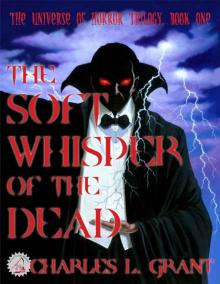 The Universe of Horror Volume 1: The Soft Whisper of the Dead (Neccon Classic Horror)
The Universe of Horror Volume 1: The Soft Whisper of the Dead (Neccon Classic Horror)![[Oxrun Station] Dialing The Wind Read online](http://i1.bookreadfree.com/i/03/19/oxrun_station_dialing_the_wind_preview.jpg) [Oxrun Station] Dialing The Wind
[Oxrun Station] Dialing The Wind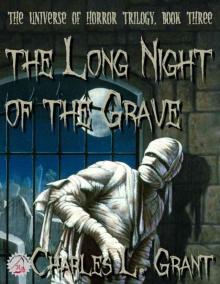 The Universe of Horror Volume 3: The Long Night of the Grave (Neccon Classic Horror)
The Universe of Horror Volume 3: The Long Night of the Grave (Neccon Classic Horror)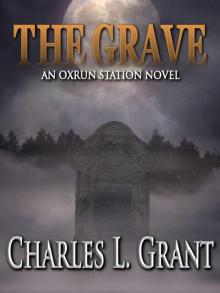 The Grave - An Oxrun Station Novel (Oxrun Station Novels)
The Grave - An Oxrun Station Novel (Oxrun Station Novels)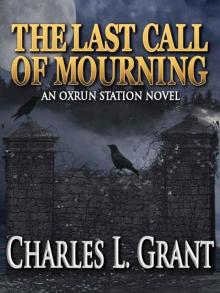 The Last Call of Mourning - An Oxrun Station Novel (Oxrun Station Novels)
The Last Call of Mourning - An Oxrun Station Novel (Oxrun Station Novels)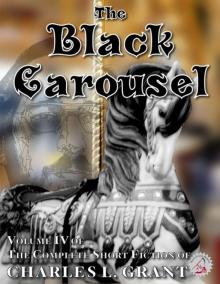 The Complete Short Fiction of Charles L. Grant, Volume IV: The Black Carousel
The Complete Short Fiction of Charles L. Grant, Volume IV: The Black Carousel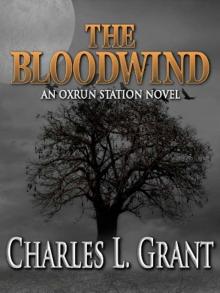 The Bloodwind - An Oxrun Station Novel (Oxrun Station Novels)
The Bloodwind - An Oxrun Station Novel (Oxrun Station Novels)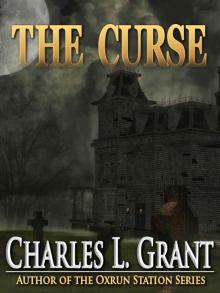 The Curse
The Curse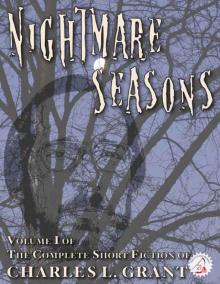 The Complete Short Fiction of Charles L. Grant Volume 1: Nightmare Seasons (Necon Classic Horror)
The Complete Short Fiction of Charles L. Grant Volume 1: Nightmare Seasons (Necon Classic Horror)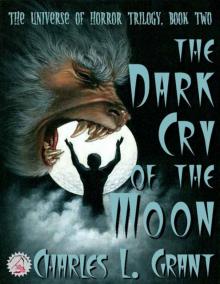 The Universe of Horror Volume 2: The Dark Cry of the Moon (Neccon Classic Horror)
The Universe of Horror Volume 2: The Dark Cry of the Moon (Neccon Classic Horror)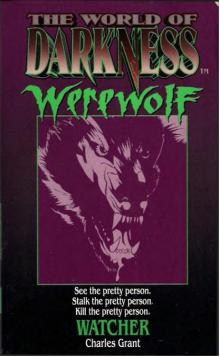 Watcher: Based on the Apocalypse (World of Darkness : Werewolf)
Watcher: Based on the Apocalypse (World of Darkness : Werewolf)![[Oxrun Station] The Bloodwind Read online](http://i1.bookreadfree.com/i/03/25/oxrun_station_the_bloodwind_preview.jpg) [Oxrun Station] The Bloodwind
[Oxrun Station] The Bloodwind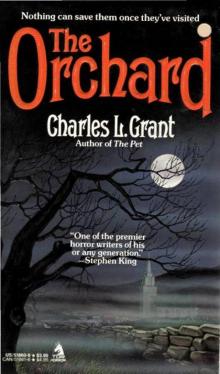 The Orchard
The Orchard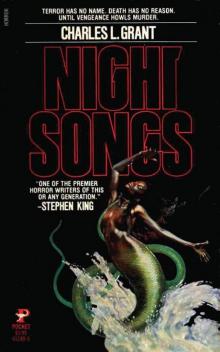 Night Songs
Night Songs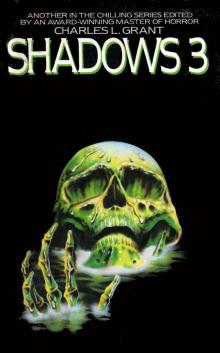 Shadows 3
Shadows 3![Symphony - [Millennium Quartet 01] Read online](http://i1.bookreadfree.com/i1/04/02/symphony_-_millennium_quartet_01_preview.jpg) Symphony - [Millennium Quartet 01]
Symphony - [Millennium Quartet 01] The Hour of the Oxrun Dead (Necon Classic Horror)
The Hour of the Oxrun Dead (Necon Classic Horror)![In the Mood - [Millennium Quartet 02] Read online](http://i1.bookreadfree.com/i1/03/31/in_the_mood_-_millennium_quartet_02_preview.jpg) In the Mood - [Millennium Quartet 02]
In the Mood - [Millennium Quartet 02]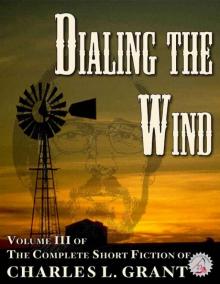 The Complete Short Fiction of Charles L. Grant Volume 3: Dialing the Wind (Neccon Classic Horror)
The Complete Short Fiction of Charles L. Grant Volume 3: Dialing the Wind (Neccon Classic Horror)![[Oxrun Station] The Last Call of Mourning Read online](http://i1.bookreadfree.com/i2/04/05/oxrun_station_the_last_call_of_mourning_preview.jpg) [Oxrun Station] The Last Call of Mourning
[Oxrun Station] The Last Call of Mourning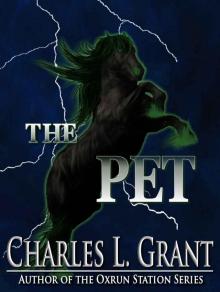 The Pet
The Pet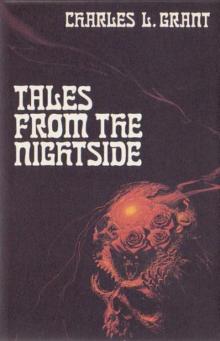 Tales from the Nightside
Tales from the Nightside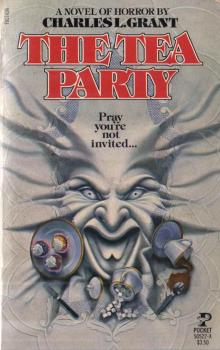 The Tea Party - A Novel of Horror
The Tea Party - A Novel of Horror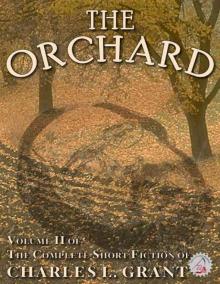 The Complete Short Fiction of Charles L. Grant Volume 2: The Orchard (Necon Classic Horror)
The Complete Short Fiction of Charles L. Grant Volume 2: The Orchard (Necon Classic Horror) Whirlwind
Whirlwind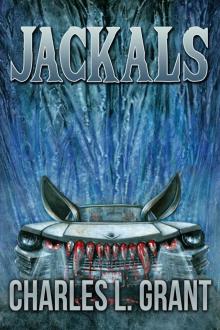 Jackals
Jackals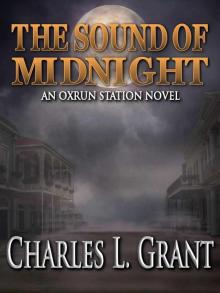 The Sound of Midnight - An Oxrun Station Novel
The Sound of Midnight - An Oxrun Station Novel